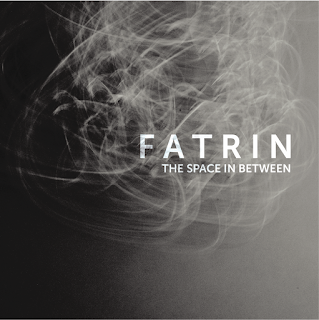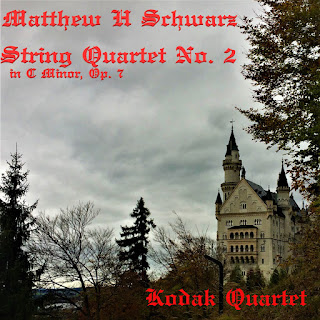Isaac Duquette - The Madness Ascends
Isaac Duquette - The Madness Ascends
Isaac Duquette is a young composer and horn player currently studying at Temple University. I recently stumbled across his latest work for string quartet, The Madness Ascends. This work was recorded by the Argus Quartet earlier this month, and you can listen/watch Duquette's score follower video here.
The Madness Ascends is a relatively well-composed work, although at times Duquette seems to fall into many of the same pitfalls young artists do. The opening three minutes, a significant chunk of a short, five-minute work, is spun out of a repeating thirteen-measure canon, with the first entrance in the cello, then slowly ascending up the quartet. The cello entrance starts on a low E, and plays around for the most part in E aeolian. Duquette then very academically stacks the entrances up by thirds to outline a seventh chord, with the viola entering on a G, violin II a B, and violin I a D. He also introduces them in fourteen-measure increments; thus waiting for the cello to finish the first bar of its second time through the unchanging melody before introducing the next voice. For a while this seems to work well for the piece, but by the fifth and sixth time through the exact same material, it feels incredibly stagnant. Academically, the music feels intricate and interesting, but since Duquette is working in such a tonal realm, these slight hidden compositional 'tricks' do little to nothing for the audience, and to them it just sounds like another slow-moving piece for string quartet.
Out of the blue, Duquette becomes increasingly chromatic, by again using the initial canon melody and altering the modality, and pushes the first violin up into the stratosphere. Here, he begins what I describe as the aleatoric cop-out, where he spends a good twenty seconds allowing the players to continue their melodic ideas on a whim. Luckily, Argus Quartet is comprised of incredibly talented performers who can make this instruction sound convincing. He then pulls back into an quiet reiteration of the canon entrances, this time using the altered mode from earlier. Duquette lets the first violin stay out of the canon, and instead introduces an eerie artificial harmonic, which later begins to glissando. As the melody becomes more distorted with sul ponticello and pizzicato sounds underneath the high glistening harmonic, the music fades out and sounds quite beautiful. Unfortunately, Duquette completely obliterates this beauty in the final bar. He asks all of the strings suddenly glissando up to their highest note, using the standard Penderecki triangle notehead, at a quadruple forte. The extended technique, not heard at all prior in the work, feels out of place and unjustified.
Simply put, Duquette, being a young composer, has some beautiful ideas which are hindered by his academic restraint to an unyielding formal structure and the albeit common new music idiom of extended technique for no apparent reason. Argus Quartet has clearly done many of these student sessions in the past, as they quickly took up the music with little to no problems. It can be risky to put up a video including the score of a work, since then it is even easier to criticize and pick apart the music. Duquette's score was very clean, but also at a glance it made it clear he was unaccustomed to writing for strings. The music was effective and completed what it wanted to as a piece, despite not taking full advantage of the string quartet as an ensemble.



Comments
Post a Comment